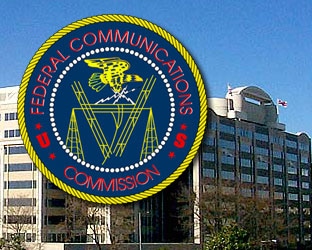 Given how archaic the FCC’s bans on media cross-ownership are, it’s imperative the commission eliminate them now. So says NAB, telling the agency even the commission itself concluded in 2011 the ban against one company owning both a radio and TV station in the same market “is no longer necessary” given how radio’s competitors have increased.
Given how archaic the FCC’s bans on media cross-ownership are, it’s imperative the commission eliminate them now. So says NAB, telling the agency even the commission itself concluded in 2011 the ban against one company owning both a radio and TV station in the same market “is no longer necessary” given how radio’s competitors have increased.
The radio industry faces growing competitive challenges from online and digital options, with weekly online radio listening growing slowly from only two percent of the total population (age 12+) in 2000 to 17 percent in 2010, and then “skyrocketing” to 50 percent in 2016, NAB cites data from Edison Research and Triton Digital. “This trend will only accelerate, as nearly three-quarters (73 percent) of those ages 12-24 listen to online radio weekly, and 56 percent of Americans ages 25-54 listen weekly to online radio,” notes NAB in an ex parte filing.
As listeners have more audio options, radio advertising revenue has fallen “significantly” over the past decade, with SNL Kagan reporting that radio advertising revenue shrunk at a compound annual growth rate of 3.8 percent from 2006-2015. Over the next decade, SNL Kagan projects the radio sector’s advertising revenue to be flat, something the FCC can’t ignore, NAB cites.
Diversity concerns as a reason for keeping the ban don’t hold up. In 2014, the FCC found most radio stations don’t produce “significant amounts” of local news and most consumers don’t rely on radio as their primary local news source.





Radio / TV combos are allowed. IMHO, Radio / Newspaper co-ownership is good for service, business and increased information! http://www.broadcastideas.com
We have lost the majority of broadcast places to get news. Most radio stations in the commercial band don’t even have news departments anymore. (It’s my job to know that.) News on the local TV station level has gone from the days of Cronkite to the days of Kardashians and dog stories. Many, many voices and sources of news have been silenced, and by allowing those same companies that have silenced those voices to take over newspapers will only do the same, reduce the sources of real, unbiased, information. The NAB should change their name to the NABB (National Association of Big Broadcasters) because I see daily that they are not representing the little independent owners nearly as much as the large groups. Large corporations are, by their nature, very conservative and it is not in their best interests to have an informed public anymore.
The abuses suffered by the broadcast industry from
parties external to the FCC over the past 2 decades
are massive. When will R & TV licensees muster the courage
to collectively address these costly concerns?
Ken Benner, Chm, Coalition for Transparency, Clarification
& Simplification of Regulations pertaining to American Broadcasting.
Comments are closed.